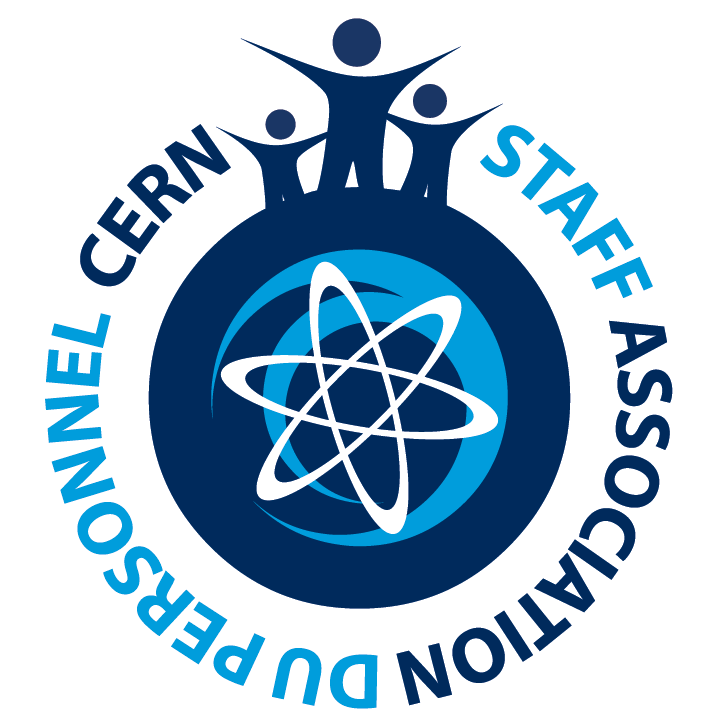Only a mobilized Personnel makes itself heard

Acting to bring the Management back to Concertation
To first transform consultation into concertation and then obtain regular discussions with the Member States to give concertation the best possible chance of becoming a reality we had to fight hard together. Getting the Management to respect its obligation to seek a common position with us, to make sure that we are then heard by the Member States, will require us to be ready to fight again and again. Here is a little history that demonstrates it.
From consultation to concertation, an early struggle of CERN’s personnel...
In 2018, the Association published an interview largely devoted to concertation at CERN with Mr. Bernard Dormy, successively Vice-President and President of the TREF (Tripartite Employment Conditions Forum) from 2011 to 2017 1.
In this article, B. Dormy summarizes concertation at CERN as “the search for a common position between the Staff Association (SA), the CERN Administration and its Member States, each of which is informed in advance and in good faith of the various aspects of the dossier and has had the opportunity to compare its position to that of the others. Like the Standing Concertation Committee (SCC), the TREF plays an important role in this process.”
No doubt when the SCC and TREF were created, they demonstrated a real and shared desire for dialogue between social partners. No doubt too that they have subsequently enabled innovative proposals to be put into practice in all areas affecting employment and working conditions. For example: the Recruitment financed by Saved Leave (RSL), various early retirement programs, the Long-Term Care (LTC) benefits scheme of health insurance, the integration of employees of subcontractors with the necessary long-term skills; all of which were initiated by the Association.
But who remembers why and how the current SCC and TREF were created?
Personnel not heard - Action - Concertation and no longer consultation
In the past, when ‘consultation’ was the key word in relations with the Management, there was a growing tendency for the Management not to act on the demands and/or proposals of the members of personnel, even when these were initially considered. In some cases, decisions were taken before consultation.
Until the last straw, or a change of time can hide another change...
Under discussion since 1976 following the oil crises of 1973-1974, a summer time change was introduced in all European Union countries in 1980 for energy saving reasons. But not in Switzerland, which then became an island in time. This immediately raised the question of working hours at CERN, which straddles the border. The following in 5 acts and an epilogue...
Act 1: Application of the summer time change in Europe but not in Switzerland.
Act 2: Management consults the SA to choose the working hours at CERN, between two proposals A or B.
Act 3: The SA consults all members of personnel by a referendum, and the personnel chooses solution A.
Act 4: At the next ScC, the Management announces that it has chosen solution B.
Act 5: The SA then boycotted the ScC meetings and triggered a conflict that was closely followed by the members of personnel, the stated objective was to finally move from the notion of consultation (simply listening) to a notion of concertation (acting in concert).
Epilogue: Finally, in 1981, the ScC recommended the transformation of the Standing consultation Committee (ScC) into a Standing Concertation Committee (SCC).
Concertation - Really?
If 1982 remains as a year of relatively good relationship within the new SCC, the following years were more difficult. To such an extent that in 1983, the then President of the Staff Association resigned from his position and explained the reasons for this in an open letter to the staff on 17/06/83. Here are selected extracts from it:
- “Since the arrival of the present Management, there has been a growing tendency not to implement our requests and proposals, even when they are initially taken into account.”
- “In some cases, decisions are taken before (!) concertation. This was the case, for example, during the allocation of the 1983 salary index.”
- “In other cases, we agree on a style of relations and we realize that, in reality, there is no real will to put into practice the policy decisions.“
- Recalling that the Director General at the time had himself agreed to replace consultation by concertation, “he now refuses to participate in SCC meetings, as he has done in the past during particularly important debates. On such matters, the Director General reserves to himself the role of arbitrator in the event of conflict at the SCC, he tells us. He thus retains for himself the rare privilege of being both judge and party.”
- “There is no formal structure at CERN that gives the representatives of the members of personnel the opportunity to negotiate with Member States on the various aspects of personnel policy.”
Also note the following passage concerning the judgement of a particular case, where ILOAT underlined at the time “that in this case, the Organisation disregards the limits imposed on the power of the Director-General...” and that “it behaves as if the Director-General had a power which is not subject to any control”.
The Personnel no longer heard - Action - TREF
During the years 1984-1988, relations between the SA and the Management remained rather tense, but ultimately courteous at the SCC. Various ad hoc actions were taken by the SA in response to attacks on pensions, to defend salaries, etc., thus maintaining the required respect, always with the support of the members of personnel.
However, from 1989 onwards, things became complicated with the arrival (again) of a new Management.
The reasons for conflict were growing, there was a succession of grumblings, and the SCC was no longer sufficient.
As already demanded in 1983, an official committee for discussions with the Member States was still missing. The need for such a committee became more pressing for the members of personnel, who remained united behind the SA. Therefore, several tripartite discussion bodies followed one another, the CEC, CCEC and TRACE, which showed the need for a permanent tripartite body.
In 1995, at a time when the CERN Council intended to exclude the Association from the discussions, a tough conflict arose between the members of personnel and the supervisory bodies. The Association then called on the personnel to take a radical action: hundreds of colleagues blocked access to the Council chamber in the middle of a Finance Committee meeting: the meeting had to be interrupted. The meeting would not resume. Unheard of! It was to reduce the risk of such conflicts that the Council decided a little later to create the Tripartite Employment Conditions Forum (TREF 2).
This is the most successful form of official relations between Member States, Management, and the Staff Association: a forum for discussion and consensus-building that deals with all conditions of employment.
Today, it has been a few years since the personnel were really heard by the Management. Recently, it took a concerted work stoppage notice and the mobilization of several hundred colleagues to get the Management to back down from drastic cuts on the indexation of salaries for inflation and merit-based advancement. We would like to express our deepest thanks to all the colleagues who gathered with us on this occasion. That the Management was not able to listen to the personnel on such matters within the framework of the SCC is very serious. For them to listen again, will it be necessary for the members of personnel to act once again, for major action to be taken?
1- https://cds.cern.ch/journal/CERNBulletin/2018/03/Staff%20Association/2300317?ln=en
